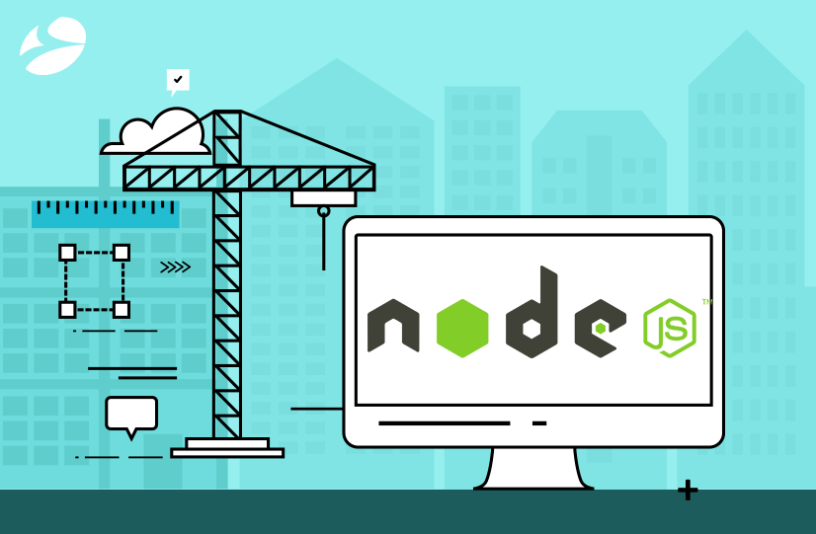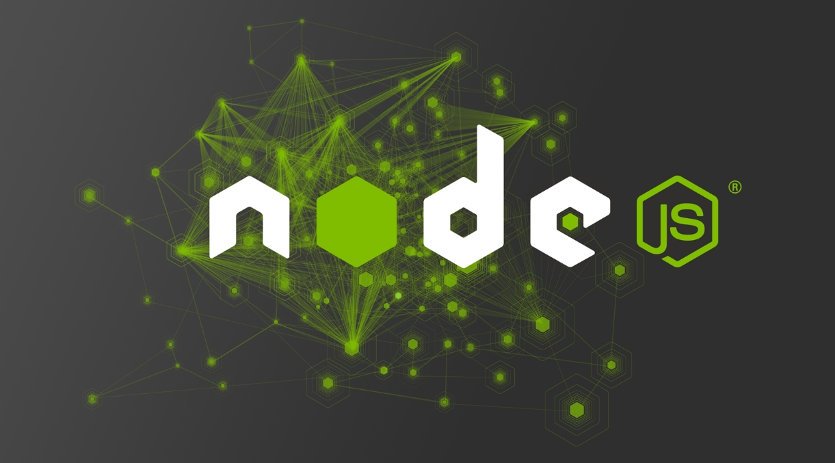When choosing stacks for building a web app most of the software developers would include JavaScript in their lists. JavaScript is one of the most popular programming languages. It’s a lightweight, simple-to-learn solution that allows building robust and effective applications.
Though JavaScript is mostly known for front-end development, it also can be successfully applied to the back-end. And that’s where Node.js steps in. In this article, you’ll find out how to find web developers who choose Node.js development services for building the back-end, what are the advantages of Node.js, and why you need to use Node.js in your web app development.
Overview of Node.Js
Node is a frequently used tool for web development. Statista states that 51.4% of web developers prefer Node.js to such prominent solutions as .NET, .NET Core, and React Native. But what exactly Node.js is? Let’s have a quick Node.js review.
Web developers call Node.js a framework, though it’s a bit more than just a framework.
Node.js is a cross-platform and open-source JavaScript runtime that sustains the server-side code of a web app. Runtime means that Node.js provides web developers with its own environment for code execution on a computer machine instead of running JavaScript in a browser. For this, it uses the V8 Engine that helps run JavaScript codes on a server.
Yet, like most of the frameworks, Node.js contains a wide range of tools that alleviate web development processes and allows web developers to use various library combinations.

Ryan Dahl first introduced Node.js technology in 2009, and since then it’s been one of the most used solutions for effective and fast web development. Such big brand names as PayPal, Uber, Netflix, LinkedIn, eBay, Walmart use Node.js in their web apps.
Key Features and Benefits of Node.Js
When businesses consider investing in their own custom web apps, they need to make sure that they choose the right development tools. This choice is crucial as it determines apps’ capacities, reliability, and effectiveness.
There are several reasons why web developers opt for Node.js for building web applications. Let’s have a look at some of them.
Node.js Core Features
Node js popularity among web developers is easily explained by its outstanding core features such as:
-
V8 Engine
Built by Google and written in C++ V8 Engine makes the basis for Node.js, it compiles JavaScript functions into machine code. V8 Engine helps Node.js to perform its operations fast and create web apps that can run concurrent requests. It means that Node.js web apps can process requests faster, improving app response times.
-
Single-Threaded Architecture
Single-threaded architecture also adds to web apps’ capacity for processing multiple requests without any delay. Node.js uses asynchronous request processing when each request is processed without blocking the thread. For this, Node.js doesn’t need to create additional threads for each request, instead, it uses an event loop and callbacks for I/O operations to manage requests simultaneously.
-
Event-Based Model
Event-Based Model in Node.js relies on the idea of using a common programming language for client and server sides, fast synchronization, and single thread request processing.
All of these make Node.js web apps super-fast and a popular choice for various cases that require frequent data updates such as streaming video conferences and chats, IoT solutions, online gaming, and many others.

-
Node.js Microservices
Node.js supports a microservices architecture. It allows scaling your apps as your project grows and adding additional features while keeping the performance quality high.
When using microservices architecture, web developers compile web apps from smaller self-contained units that represent separate services. Gathered together in a single app they communicate with each other using lightweight mechanisms such as APIs.
These smaller modules make web apps more flexible and easier-to-scale in the future. Web developers can add additional microservices above the existing ones and seamlessly align new functionality with the already working features.
The most used microservice-related technologies in Node js app development are Docker and Kubernetes containerization platforms that automate the deployment and scaling of containerized applications.
Node.js NPM
Node Package Manager (NPM) is a default tool in Node.js that helps it to organize modules alongside the framework so that Node can easily find and manage them. Software developers use NPM for publishing, discovery, installation, and development of Node web apps.
NPM contains more than 1.6 million development packages and even more get published every day. Node.js ecosystem is quite diverse and it provides a wide variety of accessible open-source development tools for building web apps of varying degrees of complexity.
Serverless Web Development with Node.js
With Node.js software developers can build serverless web apps. It means that they don’t need to manage server software and hardware for their apps to run smoothly. Instead, web developers can handle the server maintenance responsibilities over to third parties like Amazon’s AWS Lambda, while concentrating more on their apps’ business logic and features.
Besides that, serverless development offers continuous app scaling when serverless services automatically scale app code depending on different events, optimized costs, faster time to market, and high-quality performance at any scale.
JSON Support
Node.js can use JSON format for interaction with databases without the necessity to convert between binary modes. For this, Node uses the JavaScript programming language. This feature is especially useful when web developers need to build RESTful APIs for non-relational databases that don’t store data in tabular patterns like MongoDB, DocumentDB, and others.
Why Use Node.js in Web Development
Considering all the Node js advantages noted above, let’s have a look at why and when you need to use Node.js in your web app development.
-
Real-time web apps
Node.js apps are super-fast and achieve great performance in intense traffic environments or when it’s required quick request processing. For example, chat rooms with messages displayed to all the participants simultaneously or video streaming services.

-
Tools for collaboration
As Node.js can process real-time flows, it makes the best suit for collaborative tools such as Trello, a project management application widely used by large teams. In Trello, each participant can add their own agenda or change tasks using one board.
This parallel team-members’ participation with synchronous editing option in Trello is possible due to Node.js event-driven non-blocking model. It allows users to run immediate updates and use various online collaboration tools for multiple team members.
-
Data streaming apps
Node.js is great for video and audio streaming services. It easily handles large quantities of data that are sent in small packages. For this, Node.js uses its built-in modules that allow creating readable and writable data streams. Netflix video-streaming service uses Node.js exactly for this purpose. Moreover, many IoT developers choose Node.js for quick big data processing.
-
Apps that require high performance and scalability
Node.js provides great scalability options. And it’s a cool feature for the apps that heavily rely on scalability. For example, the apps that get high peak loads like Uber.
Uber has a globally expanding network of taxi services that constantly require an increase in computing powers. Moreover, as Uber needs to provide excellent service
it should always appear at the right time and in the right place. Demands for Uber will vary during the working day and can reach a high peak on holidays.
Node.js can successfully deal with all the Uber challenges. That’s why the company prefers Node.js as the basis for their app.
Conclusion
Node.js is a great choice for web application development. Web developers love Node.js for its simplicity and use of JavaScript. With Node.js they can build full-fledged, reliable, and effective web solutions that can withstand heavy traffic loads and easily handle simultaneous data requests. Also, Node.js is widely used for building serverless app architecture and IoT solutions. All of these prominent Node.js features make it a versatile tool that works great for building complex enterprise solutions as well as startups and SMEs.
